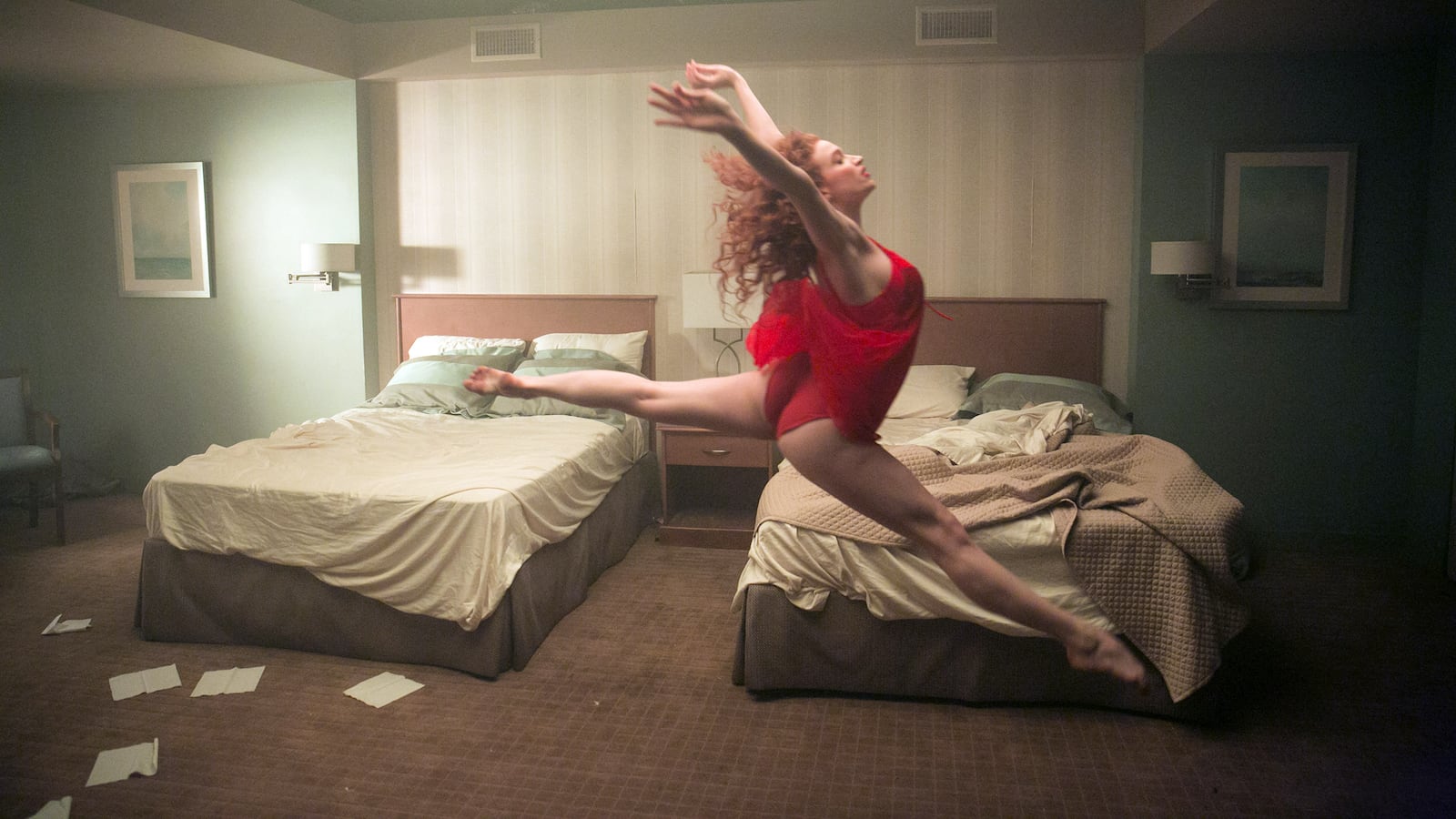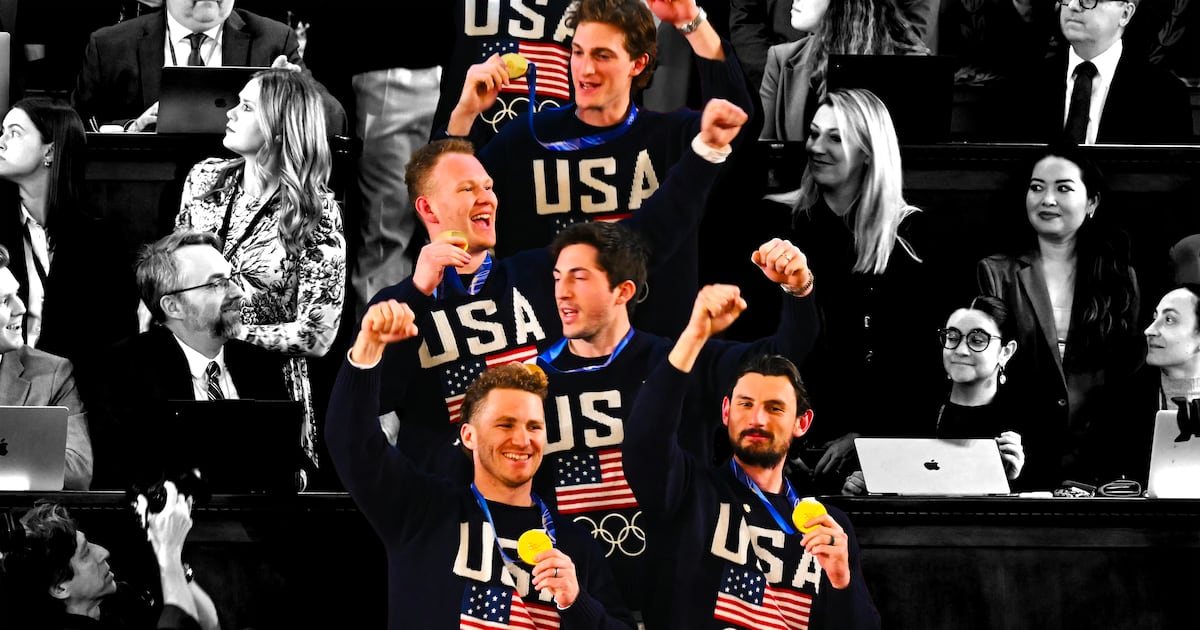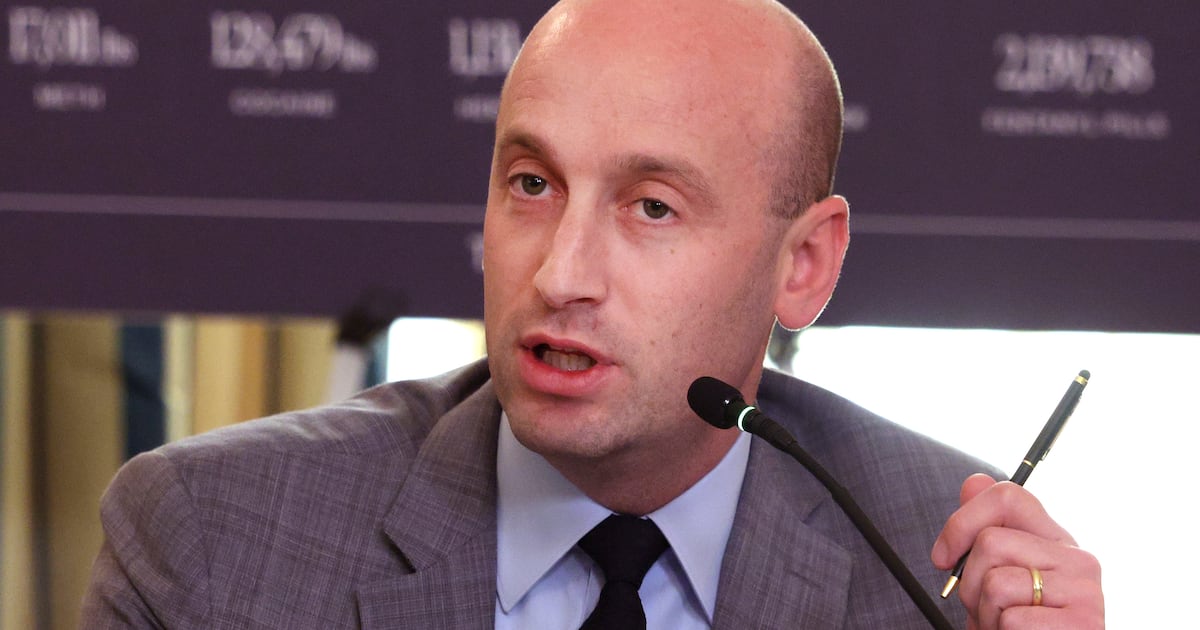It’s fitting—almost too on-the-nose, really—to be talking to Mark and Jay Duplass about their new HBO series, Room 104, in a hotel room.
The brothers are making themselves comfortable as they discuss their latest project together as producers, an anthology series where each episode, Twilight Zone-style, has an entirely different cast and storyline.
The fresh conceit: Each episode also has an entirely different tone, but they all take place within the walls of the same mid-level hotel room. (Super 8? Comfort Inn? Truck stop dump? Take your pick—the what and where aren’t important; it’s the universality that matters. In other words: We’ve all stayed there.)
Mark is shifting cross-legged on a velvet armchair, while Jay is literally lounging across the room on a chaise. They’re understandably exhausted. Room 104 brings them back to HBO a year after the cancellation of their marriage and friendship dramedy, Togetherness, and back together from their disparate—and numerous—projects individually.
Jay co-stars in Jenny Slate’s new indie, Landline, currently in theaters, while his fourth season on Amazon’s Transparent returns in the fall. Mark’s packed acting docket includes Discovery’s Unabomber miniseries out next week, the upcoming final season of The Mindy Project, and Jason Reitman and Diablo Cody’s recently announced new film, Tully.
And it’s precisely those busy schedules that created the opportunity for Room 104. The duo, who launched their production company two decades ago (indies Safety Not Guaranteed, The Skeleton Twins, and Tangerine are among the Duplass brothers’ releases), originally conceived the idea for Room 104 more than ten years ago, but their agents told them no one would watch an anthology show.
So what’s changed between then and this Friday night, when Room 104 premieres? “Honestly, we got more popular,” Mark laughs. “And anthologies got more popular. Like Black Mirror came out and we were like, ‘Oh, maybe this will work!’”
Room 104 is, bluntly, super weird. The first episode, titled “Ralphie,” is a horror thriller about a babysitter (Melonie Diaz) and an unsettling child in her charge—a carefully chosen debut episode to telegraph explicitly, as Mark says, “this is not Togetherness: Part Two.”
Other outings include a marital drama featuring a senior citizen couple, an action-heavy installment featuring an epic mixed-martial-arts fight, a modern dance performance featuring a hotel housekeeper, and a stirring period piece in which a writer needs to retrieve important documents from his laptop and must talk his technology-challenged mother through the process of helping him on the phone.
“If we get that sense from people of, like, ‘What the fuck is going on with this thing?’ that’s part of what we want to see,” Jay says. “People feel weirdly burdened, I think, by all of the TV that’s out there. Friends are coming up to you, like, ‘Have you seen this show?’ And you’re like, ‘No! I haven’t! Get off my back!’ So for us to have this show where someone can just turn it on and watch any fucking episode. It’s 23 minutes, and made by people who you hopefully think are cool.”
With Room 104 making an auspicious debut this Friday, and the brothers proudly leaning into, even trumpeting, its strangeness, we chatted with them about what, exactly (if anything), we should take away from the experimental new project.
What changed from the time when you first had the idea of an anthology show and you were told people wouldn’t be interested and now, with this actually happening?
Mark: Honestly, we got more popular. And anthologies got more popular. Like Black Mirror came out and we were like, “Oh, maybe this will work!”
Jay: We also got more confident in applying our DIY, money-saving principles inside of the studio model. Like, “We know how to make this cheaply. This is how we’re going to model it. This is how we’re going to do it.”
Mark: We own that more now. We go to HBO and rather than be like, “This is your next Game of Thrones!” we’re like, “This is probably not going to be your next Game of Thrones. This is your Friday night experimental risk.”
Which is sort of freeing on both sides, right?
Mark: For both parties it’s truly great. We’re not unaware that it’s a little odd to ask audiences to show up not only for a new storyline with different characters each night, but also not know the genre of story you’re going to get. We’re hopeful that experiment will be exciting to people. “Those Duplass guys, they’ve produced a lot of different things. Hopefully this will be interesting.”
Jay: We also like the idea that if you don’t like one episode, then you can jump to the next one, too.
That’s the fresh take on the classic genre, the change of tone from episode to episode.
Mark: That’s the only thing that’s truly new here.
That’s risky.
Mark: It’s totally risky. And that’s why we do things so cheaply. (Laughs) It mitigates the risk. The response so far has been really good. We’ve learned something that we would like to say we were smart enough to have curated, but what was a total accident, which is, people are like, “What I love about this show is that I’ve got about 400 shows on my queue and I’m behind on most of them and I can’t catch up and feel overwhelmed by them. And every now and then I want to pop into something for 25 minutes of my time and not have to do homework to get caught up on it.”
Which is an anomaly in the age of Peak TV and bingeing.
Mark: To do that in a narrative format that’s truly episodic, I think in the age of Peak TV, we’re realizing there’s something of value in the casual dating way you can relate to Room 104.
Where did the conceit that everything takes place in the same hotel come from?
Jay: Part of it is just that Mark and I travel a lot together and stay in hotels together and go to airports and are obsessed with watching people and trying to figure out what their lives are like and what’s going on behind closed doors. Everybody stays in hotels. Lots of crazy shit happens in hotels, but also lots of really personal things. It’s almost like this weird portal scenario in your own life.
Mark: We’ve always functioned really well, creatively, in a system of limits. What did change from the original idea to when we got real about making it, was, like, let’s lay down some rules. Every director only gets three days to make an episode. You only get a few actors. You can never leave the hotel room. It all has to happen inside the hotel room. Little things like that, the composer’s going to come up with the melody and you get the melody as a director and can choose whatever chords and tempo you want, but you’ve got to have that melody. Those kinds of things were really fun for us. Whereas I’ve been on sets where it’s $12 million an episode, and everybody is deathly afraid that they’re not going to make something great to justify that cost.
Did you guys have input on airing “Ralphie” first?
Mark: We talked about all that stuff. They loved the idea of airing “Ralphie” first because they agreed with us that we needed to show people that this is not Togetherness: Part Two. We wanted to come out strong with that statement.
In what ways is this born out of your experience on Togetherness or in reaction to it ending, in terms of format and tone?
Jay: With Togetherness, we dug really, really deep into our own personal lives and the lives of all our peers living in L.A. It’s just a really specific, narrow slice of life.
Mark: Then you have to keep telling that story every season.
Jay: It’s onerous. It’s interesting to live through that. I think this definitely was born of “get off our back!” Wanting to try something new, something different.
Mark: Jay and I authored everything in Togetherness. This was more like, let’s get this thing started and then pass it off to somebody else and see what they can do with it. It’s a mutual appreciation society of us being like, thank you so much for bringing this new perspective to it and them being like, “Oh my god you gave me my first TV job, thank you so much for doing that for me.”
Jay: Not to get overly political about it, but it is exciting for us to help democratize modern television. To bring marginalized voices to the forefront. It’s important to us. It also happens to be fun, and we think it makes our art better.
How does this fit, or not fit, into what people might consider the Duplass Brother oeuvre?
Mark: We found ourselves letting people know this is not Togetherness: Part Two, just in case it’s what they’re coming for. We don’t really know how people are going to respond to it. From our perspective, it’s like, if you’ve seen a lot of the things we’ve been doing, this is like a mini capsule of the different types of movies and TV shows that we’re producing. We made, of course, Togetherness, but we’ve also made Creep and The One I Love, which are horror and sci-fi, and Take Me, which is a thriller. We’re hopeful that people will be excited to see these different things. And we’re slightly nervous that people will be like, “I miss my sensitive realist dramedy that Togetherness was. Please give me more of that.” I think it’s fair to assume that some people are going to like certain episodes and not others. We’re braced to be OK with that.
Jay: We’re OK with a slow unfolding and experiencing of something that’s a little bit mysterious.
Mark: I don’t think anybody is going to watch this show until the third or fourth episode anyway. We’re a Friday night show without a lot of promotion. Ninety percent of people who are going to watch us will be on HBO Go or HBO Now.
Jay: If we get that sense from people of, like, “What the fuck is going on with this thing?” That’s part of what we want to see. There’s a lot of commitment in watching TV these days. It’s hard. It’s hard to watch TV. People feel weirdly burdened, I think, by all of the TV that’s out there. Friends are coming up to you, like, “Have you seen this show?” And you’re like, ‘No! I haven’t! Get off my back!’ So for us to have this show where someone can just turn it on and watch any fucking episode. It’s 23 minutes, and made by people who you hopefully think is cool.
Mark: We think of it as the Tinder of television. Just come over here and have some quick casual sex with this and then leave it behind, and we will not feel used.
Swipe right or left on the episode or genre you like or don’t like.
Mark: Exactly!
Jay: Swipe right or left! You’ll find what you like.






